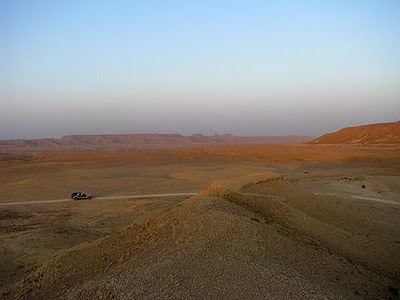Compared to the 'war on terror,' the deadly Mexican war on drugs gets little media attention. The war is not a proverbial 'just say no' war but a real battle being fought on Mexican streets with daily deaths. Since conscripting the military into law enforcement duties, almost all of Mexico's 100,000 man army are now deployed across the country.
The Ixtlan de Juarez Church
By some estimates, the war has cost Mexico over 18,000 lives since it began a few years ago. The deaths are not restricted to law enforcement personnel or members of the drug cartels.
Yesterday, ten teenagers who refused to stop at an illegal roadblock were killed. Earlier this month, two US diplomats attached to the consulate at Juarez were killed. In January fifteen teenagers attending a party were shot. Even graduate students at Mexico's most prestigious university, the Technological Institute of Higher Learning of Monterrey, have suffered. In a fatal mistake on March 19, Mexican soldiers chasing drug criminals shot and killed the students.
In the Mexican border town of Ciudad Juarez, official records confirm the deaths of 2,660 people in drug related violence in 2009. Ciudad Juarez, a city of approximately 1.5 million on the Rio Grande River, lies directly across the border from the Texan city of El Paso.
The city has the dubious distinction of being a leading 'Murder Capital of the World,' beating out contestants Caracas, New Orleans, Cape Town and Moscow for the title. Allegedly, the city is the most violent zone outside of a declared war zone. (Of course, there are no real wars anymore, nor are there any rules to war.)
Ironically, Mexico fights its drug war at a time when pressure to legalize marijuana in the US is growing. The first legal marijuana cafe opened in Portland, Oregon in November 2009. The moves to legalize cannabis are related to its medicinal properties but surely once the Pandora's Box is opened recreational users also benefit?
At end 2009, Los Angeles housed more than 1,000 legal marijuana 'medical dispensaries.' It is hard to believe such a large number is needed for the city's glaucoma sufferers. A California state analysis on taxing the plant claims the state can conceivably raise one billion dollars annually.
Crosses erected to mark the victims of female homicide in Ciudad Juarez
With twenty-one people killed in drug related violence this past weekend in Mexico, many ordinary Mexicans must be wondering what the war is all about. In many ways, the sufferings in the badlands straddling the US-Mexican border area are no different from the sufferings of the Pashtuns in Pakistan's tribal areas.
Wars are about power, money and the ability to levy taxes. If the Americans can't get their way through the Mexican army, will we see Predator drones start flying over Ciudad Juarez in 2010?
Watch a fascinating five minute New York Times video about a female American charity worker's daily trips to Ciudad Juarez from El Paso, Texas.




.jpg)



































